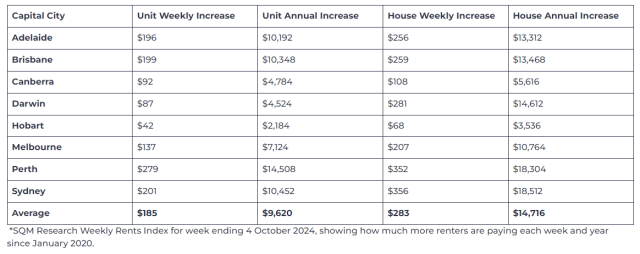Landlords in NSW will no longer be able to evict tenants for no reason.
The rental reform – one which advocates have been waiting decades for – is among one of many changes that have been introduced to the NSW parliament this week through the Residential Tenancies Amendment Bill.

“It’s really important and a big reform that we have been waiting 50 years for,” Jemima Mowbray – policy and advocacy manager at the Tenants’ Union of New South Wales – told Government News. “It’s getting rid of the ability to end a tenancy for no grounds and putting in some requirement for landlords to provide a reason to tenants when they’re ending the tenancy.”
Abolishing no-ground evictions is, said Mowbray, “a really important, big change … It’s what is needed to ensure renters can feel confident in asserting all of the other rights that are in there in the [Residential Tenancies] Act.”
With the constant threat of eviction hanging over them, renters haven’t always felt confident in asserting those rights said Mowbray. “There was always this worry that if they did kick up a fuss, they might be kicked out.”
As well as ending no-ground evictions, the NSW bill – which will be debated and potentially passed through parliament next week – will also see rent increases capped at one per year.
“It’s a good piece of reform but, to be honest, it’s not significantly new,” Mowbray told GN. “It’s extending a protection that’s already in place.”
At the moment, tenants in NSW on periodic agreements are protected against more than one rent increase a year. However, renters on fixed-term tenancies of less than two years – or those changing between a fixed-term and a periodic tenancy – may face multiple rent increases within a 12-month period.

“Ensuring renters can only be hit with one rent increase a year will provide greater certainty and protection for renters regardless of whether their lease type changes,” Minister for Better Regulation and Fair Trading Anoulack Chanthivong said.
Mowbray told GN the rent cap was a good move and one that sits alongside historic legislation, “but it’s the evictions reform that is really the key component of the bill”.
She said that, overall, the reform bill shows that the Minns Government is listening to the concerns of the state’s 2.2 million renters. “I think what it points to is that government is recognising that there is a need to address the really steep rent increases that sitting tenants are facing at the moment.”

Analysis from Everybody’s Home – a national organisation dedicated to solving Australia’s housing crisis – shows renters in capital cities are paying $14,700 more a year to rent a house, and $9,600 more a year to rent a unit compared to the beginning of 2020.
NSW is the least affordable state for renters, with median rents currently at more than $700 a week.
More reform is needed, said Mowbray, to address the state’s record-high rental prices. “We need to have a conversation about what more might need to happen in terms of regulating rents if we really want to ease the pressure sitting tenants are facing in terms of rent increases.”





This is a very sad day for tenants because every day you restrict landlords ability to control their assets the more landlords you drive away from being a landlords. Removing a landlord removes a home for a tenant, forces rents up and adds red tape that in turn adds to the inward spiral.
If tenants genuinely want to help the housing crisis they need to make all the unoccupied bedrooms available to other tenants.